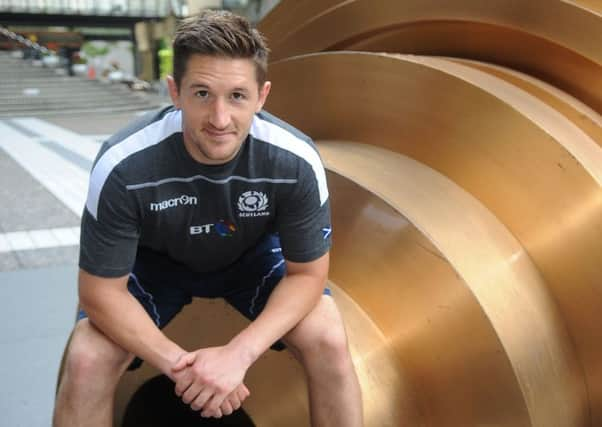Tourists have acclimatised, now they must cut out silly errors


It’s no wonder, taking everything into account, that rugby players get injured more often, and perhaps more severely, than used to be the case.
Much was made before last Saturday’s match about Japan fielding a “depleted” XV, missing several of their first-choice World Cup team. Fair enough, but they did have the advantage of playing at home, and none of them had, like Richie Gray, been playing in France the previous weekend and then flown half-way across the world.
Advertisement
Hide AdAdvertisement
Hide AdToday it’s Scotland who are depleted. We arrived in Japan without Finn Russell, Alex Dunbar, Mark Bennett and Tim Visser. Ross Ford dropped out before the game. Injuries last week mean that today’s team is also missing Alistair Dickinson and Willem Nel, so that we are without our preferred front row. Duncan Taylor is also out injured.
With all due respect to Matt Scott and Peter Horne, both fine players, we are today fielding our fourth and fifth choice centres, with the uncapped Huw Jones on the bench. Of course, both Scott and Horne have played very well at international level, and there probably isn’t much to choose between them and Dunbar, Taylor and Bennett. Nevertheless this is some way from being a full-strength Scotland XV.
Vern Cotter has also chosen to pick Henry Pyrgos at scrum-half, relegating his captain Greig Laidlaw to the bench. Laidlaw’s goal-kicking is, of course, invaluable, and certainly he is a more reliable kicker than Pyrgos or Ruaridh Jackson. Last week, however, he seemed to be slow and overly cautious in moving the ball from the base of the ruck, making sure that everyone was in place before he did so. While this may make errors less likely, it means that the opposition defence is also in position. I suppose that Pyrgos will be instructed to move the ball more quickly and also to look for opportunities to offer a running threat himself.
The Scots were caught dozing when Japan took a tap penalty to set up the attack from which they scored the first-half try that took them into the lead. They won’t surely make that sort of mistake again, but will realise that their opponents are committed to playing a fast game at every opportunity.
Among other things, this means that it’s not enough to find touch with a kick. You have to put the ball well over the touchline so that a quick throw-in is impossible. It’s better to sacrifice five yards of distance to ensure that a proper lineout has to be formed. Given the presence of the Gray brothers, Ryan Wilson and John Barclay in our lineout, winning a Japanese throw is always on.
Other avoidable mistakes were made last week, Stuart McInally over-throwing when we had an attacking lineout a few metres from the Japanese try-line. This is a surprisingly common mistake even at the top-level of the game. It’s also one hard to forgive because it almost always results in lost possession and therefore the loss of a try-scoring chance.
Then Jackson put a restart straight into touch. Of course even the best fly-halves do this sometimes; one has seen Dan Carter, Jonny Sexton and George Ford all make that mistake. You want to put the ball close to the touchline in order to cut down the defending side’s space and make their exit from the 22 more difficult. All the same it’s a blunder which surrenders the territorial advantage you should get from a restart.
In any case, against Japan, there must be a good argument, given the advantage in height Scotland have, for restarting with a high hanging kick down the middle of the field. If well-judged and delivered, such a kick is difficult to defend. We’ve been in trouble against Ireland when Sexton has used this ploy, and in Rome this year Sergio Parisse repeatedly regained possession from such restarts and long periods of Italian pressure resulted.
Advertisement
Hide AdAdvertisement
Hide AdToday’s may be a weakened Scotland XV. Nevertheless in other respects they should be better-prepared, mentally and physically, than they were last week. They know more about Japan, and they have had another week to acclimatise themselves.
So they should be that much sharper, quicker to the breakdown and more accurate there.
If Scotland can cut down on the number of handling mistakes – preferably cutting them out altogether – they should score more tries and win by a bigger margin than they did in the first Test.